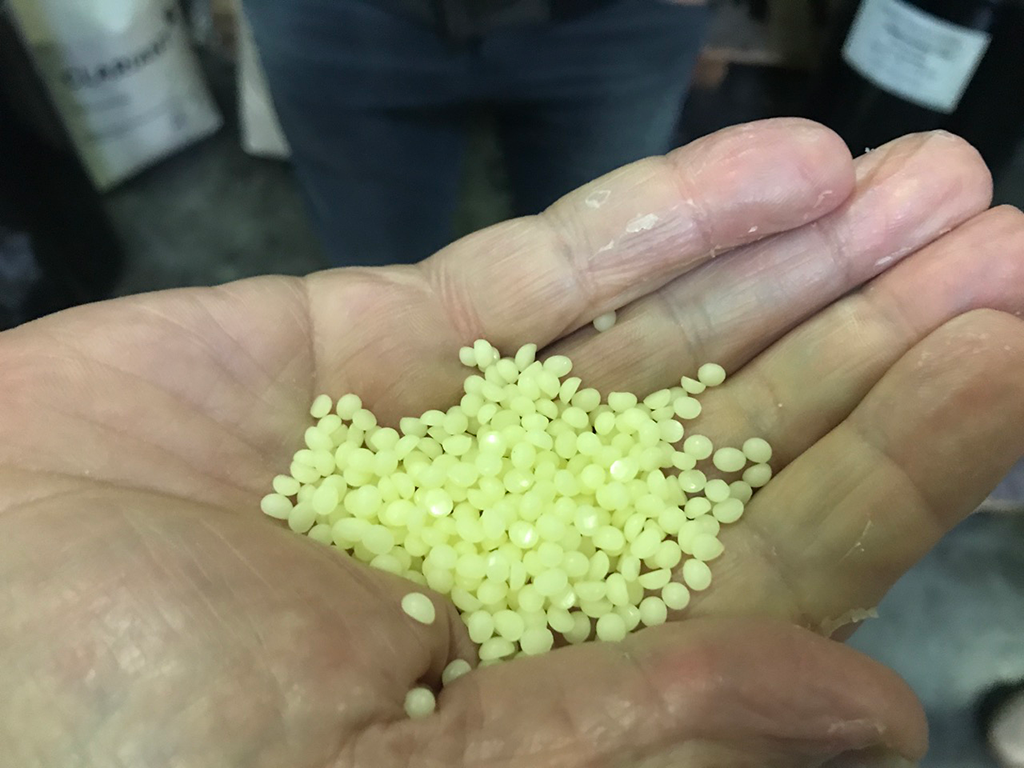Flooring Finishes Part 1: URETHANE vs OIL

NOTE: throughout this blog post, when we refer to ‘oil finishes,’ we are referring to finishes that are made with natural oils such as soy and linseed. These are not to be confused with ‘oil-based’ or ‘oil-modified’ finishes, which are completely different. ‘Oil-based’ or ‘oil-modified’ finishes are so called because they contain petroleum-based solvents and are much more toxic, to the point of being illegal in some jurisdictions. When we say oil, we mean plant-based oil.
Urethane floor finishes are very durable and are currently the most popular choice in the U.S., but at Monarch Plank we believe that natural oil finishes would be more popular if they were better understood. In Europe, where oil finishes have a long tradition, they make up roughly one third of the residential flooring market and one half of the commercial market.
Oil and urethane finishes reflect two completely different approaches – oils work by fortifying and sealing the wood fibers, while urethane works by walling them off. With an oiled floor, you are walking on the natural wood surface. With a urethane floor, you are walking on a man-made barrier. Consider this analogy:
Oil is to urethane as skin is to a raincoat.
An oil finish penetrates into the wood and hardens to become an integral part of the floor, just as skin is an integral part of the body. A urethane finish is a protective layer that covers the floor, like a raincoat.
Consumers often ask which type of finish is more durable, urethane or oil, but there is no simple answer to that question. Please read on.
REPAIR & MAINTENANCE – URETHANE vs OIL
There is a common perception that oil finishes are more difficult to maintain than urethane, and that is true in the short term, because they require the regular use of special soaps and every few years need to be re-oiled. But if you consider the total long-term cost and hassle of maintaining the floor, oil finishes may actually require less maintenance, especially for someone who plans to stay in the same home for many years.
Like a raincoat, a urethane finish provides excellent protection, but its appearance and performance are never again as good as on the day it was installed. Gradually the floor gets more and more scratched up until you eventually have to sand and recoat it. Urethane finishes are very difficult, if not impossible, to patch or touch up without the repair being highly visible. Repairing scratches generally requires replacing individual boards, or recoating the entire floor - throwing away that old raincoat.
By contrast, an oiled floor that gets damaged in a particular location can usually be treated locally and blended with the rest of the floor. And, the entire floor can be refreshed fairly easily by nourishing the wood with more oil, which will remove most signs of wear and tear without sanding. Like skin, an oiled floor that is well cared for may last a lifetime.
A urethane-coated floor will, on average, need to be sanded and refinished every 10-12 years. A properly maintained oil finish will require re-oiling every 3-5 years. So, the maintenance of oiled wood floors is more frequent, but it is far less disruptive because it requires no sanding. To be sure, some of the patina and wear patterns in an oiled floor will still be visible after re-oiling, but for consumers looking for an antique or weathered look, this only adds to the floor’s appeal.
It’s important to mention that the ease of doing a localized repair on an oil finish depends on the complexity of the original color and how worn the floor becomes before the problem is addressed. Doing a repair on a color that was created with multiple layers of treatments requires more skill than most homeowners possess. Also, if someone doesn’t maintain an oiled floor properly and allows the oil to wear down to the point where the wood is no longer protected, the wood may discolor and can only be fixed by sanding and refinishing. Oiled floors therefore may not be the best choice for people who are likely to neglect their wood.
A few additional factors to consider:
- The cost of the products used to clean and maintain an oiled floor is slightly higher than the products used to clean urethane finishes.
-With oil finishes, it’s critical that you maintain them with the right products, which are specific to the type of oil that was used on your floor. Allowing someone to clean your oiled floor with the wrong product can have consequences, although this can sometimes be true even for urethane finishes.
- Oil soaps and finishes tend to have mild odors, whereas cleaning products for urethane finishes are usually odorless.
Flooring Finishes Part 2: Factory Finishes
Leave a comment
Comments will be approved before showing up.




